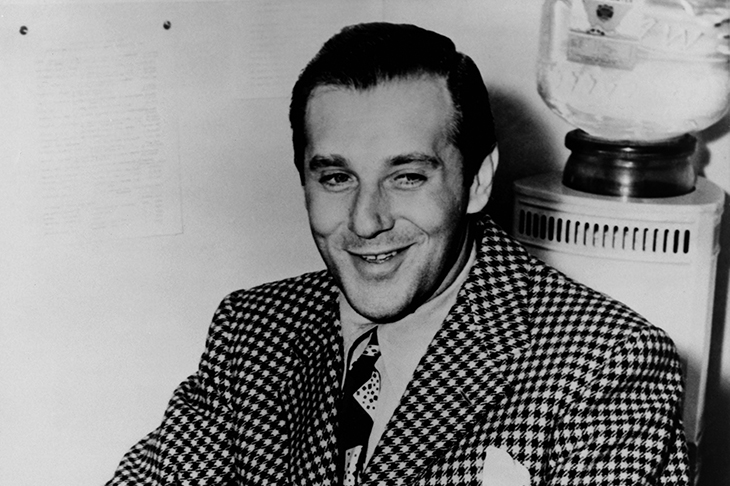Benjamin ‘Bugsy’ Siegel was about as meta-gangsterish as a real life gangster could get. Born in the slums of Manhattan’s Lower East Side in 1906, he was still a teenager when he teamed up with Meyer Lansky to become a successful bootlegger and mob enforcer. But when Mayor La Guardia came along in the early 1930s to clean up New York’s underworld, Siegel moved to California, and began dressing the way film adaptations of gangsters were supposed to. He befriended actors who played characters like him, and even filmed a couple of test scenes of himself playing a gangster who was based on a gangster like him. (The studios feared him too much to hire him. After all, who was going to shout ‘Cut!’ at Bugsy Siegel?) As if that didn’t get ontologically confusing enough, his life was eventually adapted into the great Warren Beatty vehicle Bugsy (1991), in which a gangster watches himself play a gangster while getting gunned down by gangsters..
This latest, punchiest and most compact biography of Siegel arrives in the Yale ‘Jewish Lives’ series, written by Michael Shnayerson, a longtime contributor to Vanity Fair. It is also, says the author, the first book in the series to deal with a figure who is much less than admirable. Like many young immigrants who grew up on the Lower East Side during the Depression (his father was a pants-presser in a factory), Siegel was prepared to do anything to get out and stay out — and at the time that usually meant becoming either a gangster or a night club entertainer. Bugsy Siegel didn’t sing like his fellow locals Eddie Cantor or Al Jolson, and he didn’t dance as well as his friend George Raft. So he killed people — and organised their killings. He got his notorious nickname as the result of his eye-popping tantrums — so those who knew him learnt not to call him Bugsy, or he might direct that violent temper at them.
In gangster parlance, Bugsy was ‘a cowboy’ – that is, someone who has to be in on the kill in person
As Malcolm Gladwell argues (through Shnayerson), men such as Bugsy weren’t ‘rebelling’ against society but rather using the only talents at their disposal in ‘an attempt to join in’; and join in Bugsy definitely did.







Comments
Join the debate for just £1 a month
Be part of the conversation with other Spectator readers by getting your first three months for £3.
UNLOCK ACCESS Just £1 a monthAlready a subscriber? Log in